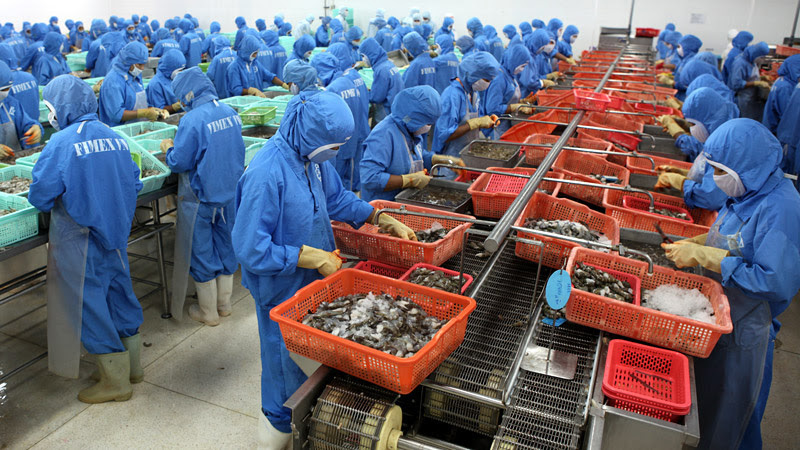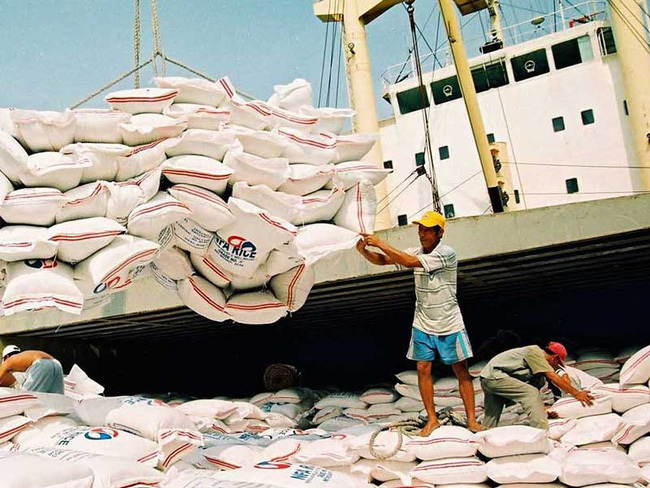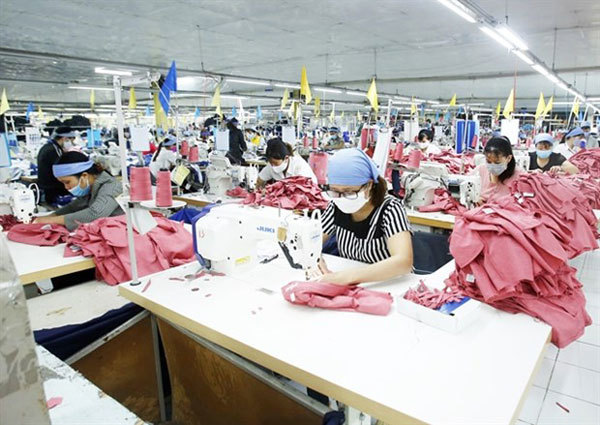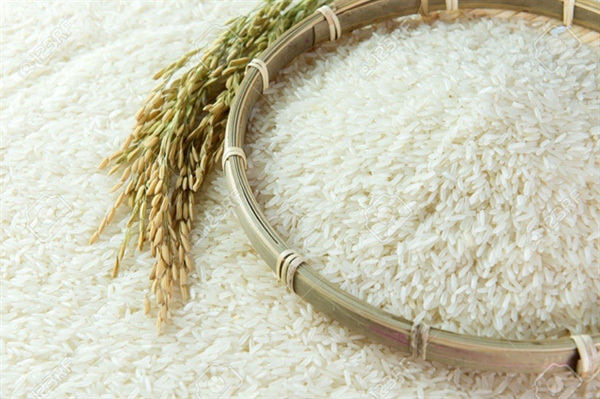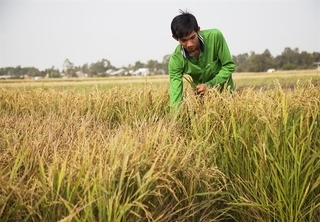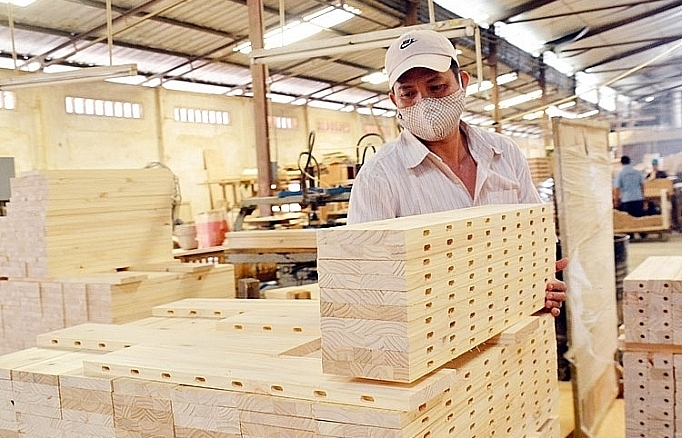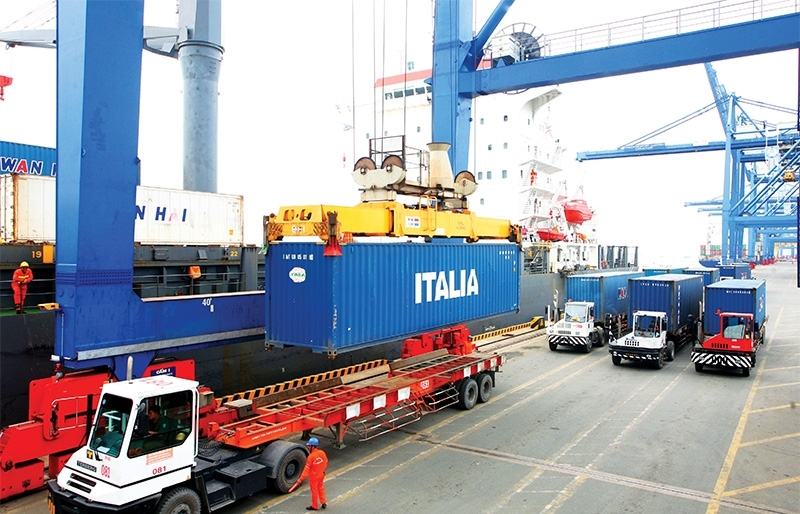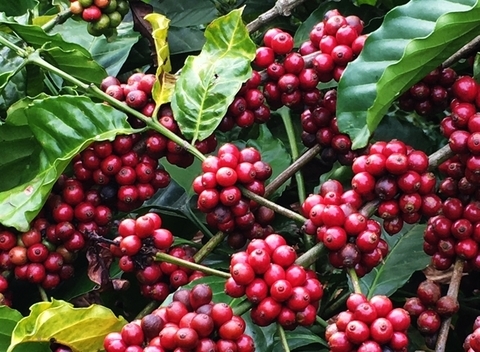- © Copyright of Vietnamnet Global.
- Tel: 024 3772 7988 Fax: (024) 37722734
- Email: evnn@vietnamnet.vn
EVFTA
Update news EVFTA
Increasing agricultural quality through new EU deal
The historic EU-Vietnam Free Trade Agreement has been in force for nearly two months now.
EU increases investment connection with Vietnamese businesses
Enterprises from a number of EU member countries have already made efforts to take full advantage of the EU-Vietnam Free Trade Agreement (EVFTA) and make moves into the Vietnamese market.
EVFTA to have wide impacts on transport businesses
The EU-Vietnam Free Trade Agreement is having an impact on the local government procurement market, with transport being among the more attractive sectors to EU businesses.
Vietnam’s farm produce gears up for EU under new trade agreement
Meeting quality standards and enjoying preferential tariffs from the new EVFTA, Vietnam’s key farm produce such as rice, fruit, coffee and seafood are rushing to head for the EU market.
Vietnam’s rice exports to EU sell at good prices
With the new EVFTA, more and more Vietnamese rice is being shipped to the EU. Scented rice in particular is being sold at high prices.
Vietnam needs to develop raw materials production to take advantage of EVFTA
A shortage of raw materials remained an obstacle that needed to be removed if Vietnamese textiles and garment enterprises want to seize export opportunities in the European Union under the EU-Vietnam Free Trade Agreement (EVFTA).
First batch of fragrant rice to be exported under EVFTA
The first batch of fragrant rice would be shipped to the EU under the EU-Vietnam Free Trade Agreement (EVFTA) by the end of this month, according to the Ministry of Agriculture and Rural Development.
EVFTA brings new impetus for Vietnam’s fishery exports
Shipments of Vietnamese fishery products to the EU in August, the first month the EU-Vietnam Free Trade Agreement took effect, increased by around 10 percent over July, demonstrating the positive effect of the deal.
Vietnam ranked world’s second M&A attractive market: Euromonitor
The country is set to score 102 and 94.6 out of the maximum of 250 in 2020 and 2021, staying behind only the US with its respective scores of 108.9 and 112.5.
Drug retailers in fierce compettion for bigger share of $16 billion market
The long queues of people standing and waiting for their turn to buy face masks show the great potential of the drug and medical equipment market.
VN farm produce prices plummet amid oversupply, impact of Covid-19
Booth avocado, the specialty of Dak Lak province, is now selling at VND10,000-20,000 per kilogram, and the price of passion fruit has also fallen dramatically.
Nine Vietnamese fragrant rice varieties given tariff quotas in EU
Nine Vietnamese fragrant rice varieties will enjoy tariff export quotas to Europe under the Europe-Vietnam Free Trade Agreement (EVFTA) agreement.
EU competition in redrawn public procurement landscape
Competition in Vietnam’s government procurement market is expected to heat up with the involvement of EU contractors, driven by the country’s highest-ever market-opening commitment in this field.
Logistics groups strive to exploit EVFTA potential
The EU-Vietnam Free Trade Agreement has created a new driving force for Vietnam’s logistics, but the industry needs to take further action to unlock its full potential.
New strategies required to set deeper roots for wood industry
To expand Vietnam’s wood industry sustainably, its development strategy must not only focus on the policies of importing countries but also domestic priorities.
Adapting Vietnamese firms to the new normal of international business
Businesses are doing their best to manage the challenges and look for some opportunities from free trade agreements and COVID-19.
Exporters strike gold by unlocking new markets
Amid the Vietnamese government’s efforts in deploying economic diplomatic efforts, the prolonged blow of the health crisis sabotaging import and export activities has prompted enterprises to seek new means
Vietnamese coffee industry seeking growth through EU trading pact
Despite being one of the world’s leading coffee exporting countries, Vietnam has not delved deep into processing to raise the added value of the popular product.
New faces in government procurement
European businesses are preparing to join Vietnamese public procurement on the back of the EU-Vietnam Free Trade Agreement (EVFTA).
EVFTA obligations can brew up coffee success
Bolstered by the growing demand in the EU, Vietnam’s coffee industry has a major opportunity to capture a bigger market share on the European continent.



